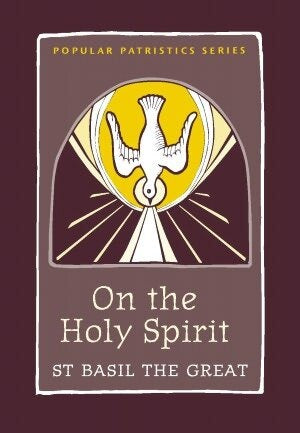
On the Holy Spirit
This classic exposition of trinitarian doctrine eloquently sets forth the distinctive yet perpetual communion and conjuntion of the divine Persons. At the same time, it deals with the theological significance of the Church's tradition of worship and proclamation. Its message, though specifically addressed to the fourth century Church, speaks to all ages. One of the most important dogmatic works of the early church.
In his funeral oration for St. Basil, St. Gregory of Nazianzus calls him a "standard of virtue," a "noble champion of the truth," and a "second Joseph" for feeding the hungry in a time of famine. The centuries-long dissemination and study of Basil's works has only confirmed Gregory's appraisal of Basil's great personal holiness, his profound insight into the eloquent defense of the Christian faith, his self-effacing generosity toward the poor and the needy, and his wise and expert guidance for those who sought a deeper union with the Lord through the ascetic life.
On the Holy Spirit is a classic expression of the Church's faith in the Spirit and a lasting testimony to St. Basil's Christian erudition. Again in the words of Gregory, Basil's treatise was "written by a pen borrowed from the Spirit's store."
[/long]

 NEED HELP? MAIL US:
NEED HELP? MAIL US: 





